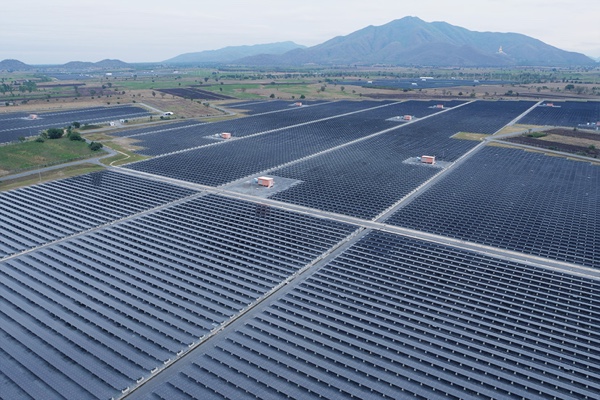
Project sermsang solar by SPN in Lopburi province, Thailand. (Photo: Sermsang Power)
The flow of funds into renewable energy financing in the ASEAN region continues to attract attention. The International Finance Corporation (IFC), a member of the World Bank Group, and Siam Commercial Bank (SCB) of Thailand have decided to provide a green loan to Thailand's renewable energy company, Sermsang Palang Ngan (SPN), totaling approximately 64 million USD. This initiative aims to foster the development of the renewable energy market in ASEAN countries such as Thailand, Indonesia, and Vietnam.
SPN, a subsidiary of the Thai energy-listed company Sermsang Power (SSP), currently operates a solar photovoltaic plant in Lopburi province, Thailand, with a capacity of 52 MW. It sells electricity to the Electricity Generating Authority of Thailand (EGAT) through a non-firm power purchase agreement.
Under the arrangement, the IFC and SCB will provide separate loans of 32 million USD each to support SPN's expansion of solar power plants, rooftop solar, and biomass power generation projects. Additionally, the IFC will assist in market expansion in the East Asia and Pacific regions, following the principles of its green finance framework.
Jane Yuan Xu, IFC Country Manager for Thailand and Myanmar, highlighted the significance of renewable energy in meeting the growing energy demands, especially in emerging markets.
The energy sector is the primary source of greenhouse gas emissions in the ASEAN region, accounting for 55%-70% of the total emissions. Currently, renewable energy sources contribute to less than 20% of the energy supply in the region. IFC believes that ASEAN countries may face adverse effects from climate change and disasters due to this imbalance, potentially leading to a significant decrease in gross domestic product (GDP). It is estimated that by 2050, the GDP could decrease by 35% compared to the present scenario.
To mitigate the adverse impacts of climate change, studies forecast a steady growth in renewable energy generation in Asia, with the share reaching 63% by 2035. Additionally, the Thai government plans to increase the proportion of renewable energy consumption to 34% by 2037 and aims to raise the target for solar installation capacity from 6 GW to 15 GW.
As of 2022, the IFC's dedicated energy investment portfolio stands at 6.1 billion USD, with half of the funds allocated to renewable energy projects. The annual electricity generation from IFC portfolio contribute to providing power to 100 million people worldwide.



